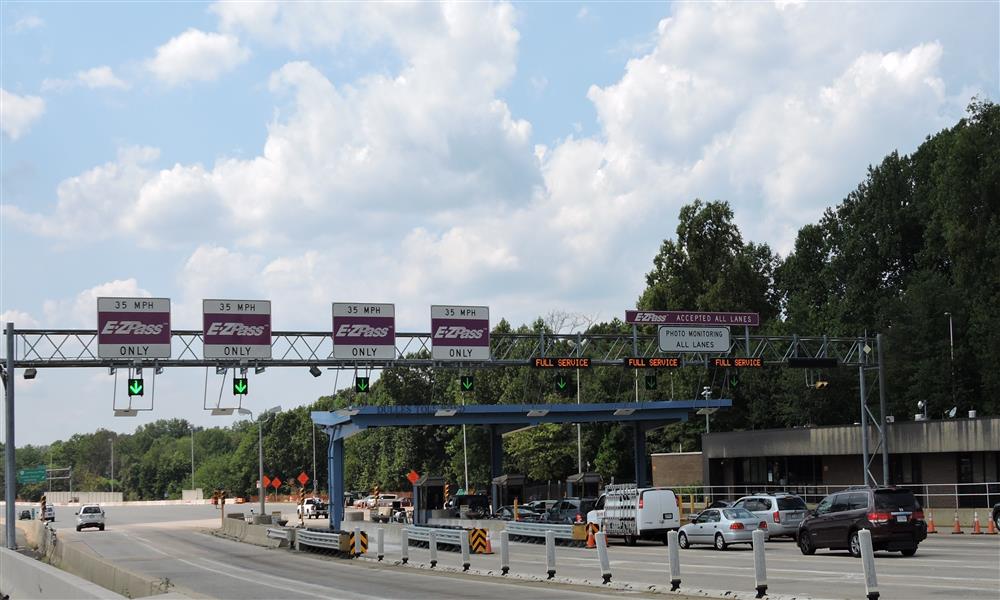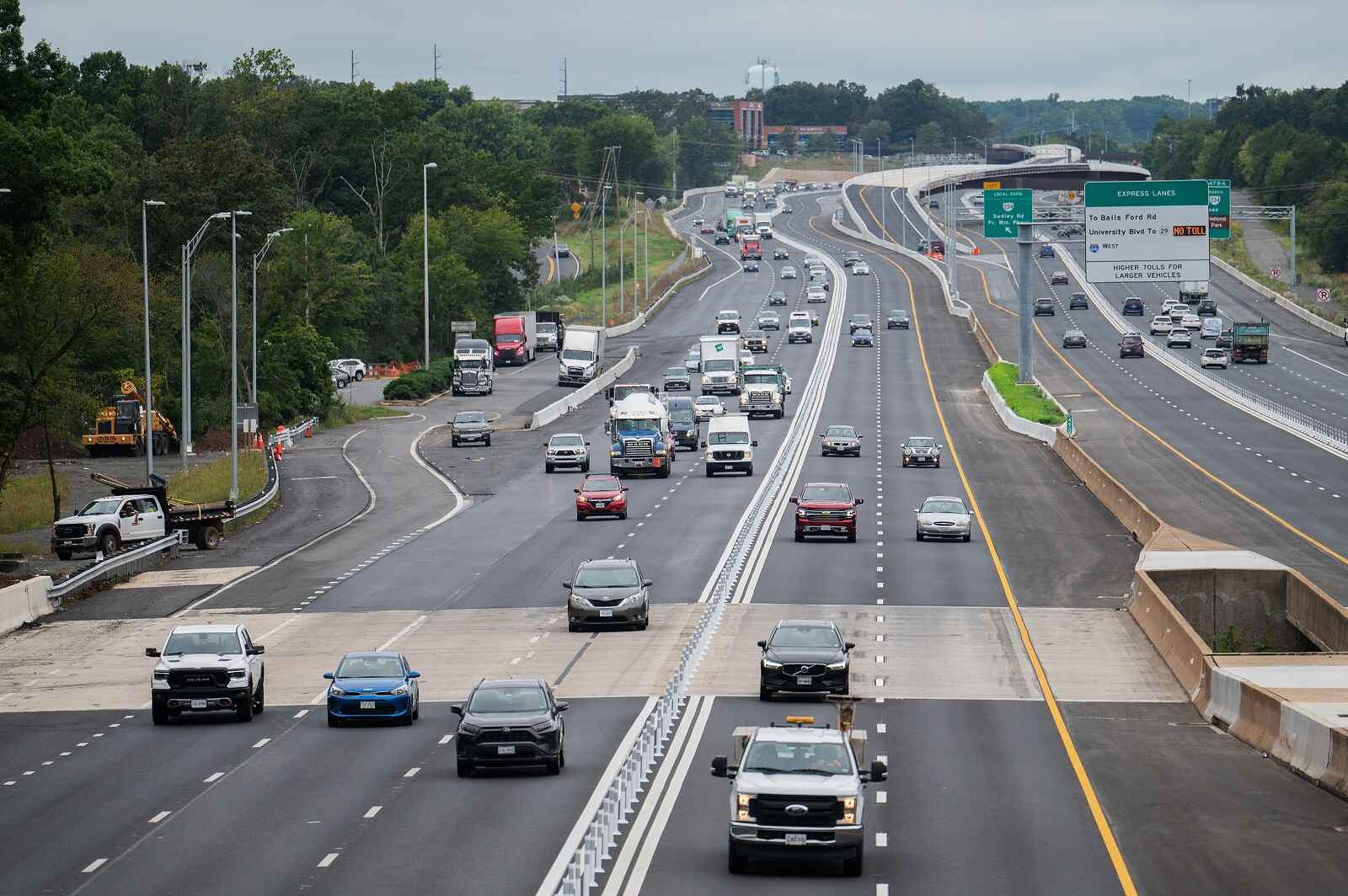Comprehensive Guide To Virginia Toll Road RV Charges: Everything You Need To Know
Virginia toll road RV charges have become a focal point for recreational vehicle owners and travelers alike. Whether you're planning a road trip or simply commuting through Virginia, understanding the intricacies of toll charges for RVs is essential to avoid unexpected expenses. This article will delve into the specifics of toll road charges for RVs in Virginia, ensuring you're well-prepared for your journey.
As the popularity of RV travel continues to rise, the need for clarity on toll road policies becomes increasingly important. Navigating the toll roads in Virginia with an RV can be straightforward if you have the right information. This guide aims to provide you with all the necessary details to make your travel experience seamless.
Whether you're a seasoned RV traveler or a first-timer, understanding how toll charges work for RVs in Virginia will help you plan your budget effectively. In this article, we will explore everything from the types of toll roads in Virginia to the specific charges for RVs, ensuring you're well-informed before hitting the road.
Read also:Hello Kitty And Friends Characters Names A Comprehensive Guide
Table of Contents
- Overview of Virginia Toll Roads
- Virginia Toll Road RV Charges
- Types of Toll Roads in Virginia
- Payment Methods for Toll Roads
- FAQs About Virginia Toll Road RV Charges
- Ways to Save on Virginia Toll Road RV Charges
- Legal Considerations for RV Owners
- Comparison with Other States
- Tips for Navigating Virginia Toll Roads
- Future of Toll Roads in Virginia
Overview of Virginia Toll Roads
Virginia is home to a network of toll roads designed to facilitate smooth and efficient travel across the state. These roads are managed by the Virginia Department of Transportation (VDOT) and the Virginia Department of Rail and Public Transportation (DRPT). Understanding the structure and purpose of these toll roads is crucial for RV owners.
Key Features of Virginia Toll Roads
The primary objective of toll roads in Virginia is to fund infrastructure improvements and maintenance. Here are some key features:
- Electronic toll collection systems for faster transactions.
- Dedicated lanes for commercial vehicles and RVs.
- Variable pricing based on traffic conditions and time of day.
By familiarizing yourself with these features, you can better plan your trips and avoid potential delays or additional costs.
Virginia Toll Road RV Charges
RV owners traveling through Virginia should be aware of the specific toll charges applicable to their vehicles. These charges are determined based on the size and weight of the RV, as well as the number of axles. Understanding these factors can help you estimate your costs accurately.
Factors Influencing RV Toll Charges
Several factors influence the toll charges for RVs in Virginia:
- Vehicle Classification: RVs are classified based on their size and weight.
- Number of Axles: The more axles your RV has, the higher the toll charge.
- Distance Traveled: Longer distances on toll roads result in higher charges.
For instance, a Class A motorhome with three axles will incur higher toll charges compared to a smaller travel trailer with two axles.
Read also:Barron Trump Height In Cm A Comprehensive Overview
Types of Toll Roads in Virginia
Virginia offers a variety of toll roads, each with its own set of rules and charges. Understanding the differences between these roads can help you make informed decisions about your travel routes.
Major Toll Roads in Virginia
Here are some of the major toll roads in Virginia:
- Dulles Toll Road: A busy highway connecting Northern Virginia to Dulles International Airport.
- Capital Beltway: Known for its high-occupancy toll (HOT) lanes, offering faster travel options.
- Hampton Roads Bridge-Tunnel: A key route connecting Hampton Roads to Virginia Beach.
Each of these roads has unique toll structures, so it's important to research them before your trip.
Payment Methods for Toll Roads
Paying tolls in Virginia is convenient and efficient, thanks to the availability of multiple payment options. Whether you prefer electronic payment or cash, there's a method that suits your needs.
Popular Payment Methods
Here are some of the most commonly used payment methods for toll roads in Virginia:
- E-ZPass: An electronic toll collection system that allows for seamless transactions.
- Pay-by-Plate: A convenient option for those without E-ZPass, where tolls are billed based on your vehicle's license plate.
- Cash Payments: Available at select toll booths, though less common due to the prevalence of electronic systems.
Using E-ZPass is highly recommended for RV owners, as it offers discounts and avoids the hassle of manual payment.
FAQs About Virginia Toll Road RV Charges
Here are some frequently asked questions about toll road charges for RVs in Virginia:
How Are RV Toll Charges Calculated?
RV toll charges are calculated based on the vehicle's classification, number of axles, and distance traveled. For example, a Class C motorhome with two axles will incur lower charges compared to a larger Class A motorhome with three axles.
Can I Use E-ZPass for My RV?
Yes, E-ZPass is compatible with RVs and offers significant convenience and discounts for frequent travelers. It's a worthwhile investment for RV owners who frequently use toll roads in Virginia.
Ways to Save on Virginia Toll Road RV Charges
There are several strategies you can employ to save money on toll road charges for your RV in Virginia:
Tips for Saving on Toll Charges
- Enroll in E-ZPass to take advantage of discounts and avoid manual payment fees.
- Plan your route to minimize the distance traveled on toll roads.
- Travel during off-peak hours to avoid higher variable toll rates.
By implementing these strategies, you can significantly reduce your toll expenses while traveling through Virginia.
Legal Considerations for RV Owners
RV owners should be aware of the legal requirements and regulations related to toll roads in Virginia. Non-compliance with these regulations can result in fines or other penalties.
Key Legal Requirements
- Vehicle Registration: Ensure your RV is properly registered and insured.
- Toll Violations: Failure to pay tolls can lead to fines and legal action.
- Weight Restrictions: Adhere to weight limits to avoid penalties and ensure road safety.
Staying informed about these legal considerations is crucial for a trouble-free journey.
Comparison with Other States
Virginia's toll road policies for RVs are similar to those in neighboring states, but there are some key differences to note:
Toll Road Policies in Neighboring States
Here's a comparison with Maryland and North Carolina:
- Maryland: Offers E-ZPass compatibility and similar toll structures for RVs.
- North Carolina: Has fewer toll roads but charges based on vehicle classification.
Understanding these differences can help you plan cross-state trips more effectively.
Tips for Navigating Virginia Toll Roads
Here are some practical tips to make your journey through Virginia's toll roads smoother:
Practical Travel Tips
- Download a GPS app that includes toll road information for real-time updates.
- Keep spare cash or an E-ZPass account handy for unexpected tolls.
- Check for road closures or construction before starting your trip.
These tips will ensure a more enjoyable and stress-free travel experience.
Future of Toll Roads in Virginia
The future of toll roads in Virginia looks promising, with ongoing projects aimed at improving infrastructure and technology. The state is investing in smart toll systems and expanding existing roads to accommodate growing traffic.
Upcoming Projects
Here are some of the notable upcoming projects:
- Expansion of the Capital Beltway with additional HOT lanes.
- Implementation of advanced electronic toll collection systems.
These developments will enhance the travel experience for RV owners and all motorists alike.
Conclusion
In conclusion, understanding Virginia toll road RV charges is essential for a smooth and cost-effective journey. By familiarizing yourself with the types of toll roads, payment methods, and legal considerations, you can better plan your trips and avoid unexpected expenses.
We encourage you to share this article with fellow RV travelers and leave a comment below if you have any questions or additional tips. Don't forget to explore our other articles for more insights on RV travel and toll road policies across the United States.
Safe travels and happy road trips!


